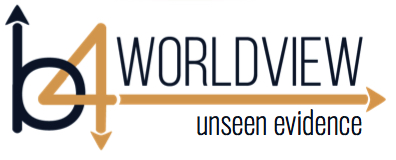
Key Thought for this session:
“Without the context of a bigger stage, BEING TRUE TO SELF is a flattering allegiance to bias and voices of deception.”
As you can see, the problem with coming to one answer to what is fair is not as easy as you might think. Each of the three options seem fair to different people, based on their worldview. Since there are several but different ways to judge someone’s actions as fair, agreement on what is fair within a community can be difficult and create strife. Getting agreement from everyone in a community about what people deserve is a major challenge because of many competing ideas of fairness.
The dominant view of fairness is called “equity.” Equity, sometimes called justice, is judging the balance between what we get and what we give. We usually say something is equitable or fair when the person receives what he or she deserves in proportion to what they do or contribute. We see this in the criminal justice system which is designed for those who deserve punishment for breaking the rules of society. Society deems their punishment as a “fair” consequence for “bad” behavior. On a similar note, an employee’s wages are generally viewed as the fair reward for the work they do. We call these wages “fair” when we consider them equal... relative to their contribution. Throughout history “an eye for an eye” revenge is a common principle based an “equity” worldview of fairness. Yet, most societies in history have come to see that revenge justice is a downward spiral to destruction. After all, where does revenge logically stop before everyone is annihilated.
Some experts believe the human’s obsession with justice is an historical evolution of striving for goodness. Religious people may believe it is just a part of human nature, an outcome of the Fall when man chose to be the agents of justice for God. However, all kinds of experts recognize the vital role of justice in human judgment. While justice is considered virtuous, the obsession we have for justice, combined with the biases built-in to justice judgments, can make everybody’s view of reality different, creating disagreement and conflict. Wars are fought where each side believes they are on the side of justice. Our obsession for justice affects us in ways we rarely foresee.
The Golden Rule is an interesting platitude or proverb that has been used for thousands of years as a virtue. It goes something like this, “Do unto others as you would have them do unto you.” This saying feels right to most people because of their sense of balance or justice. However, this principle of right and wrong is not intended to be about equity. Because, as you can see, it does not actually say “do unto others as they have done unto you.” So, clearly this is not permission for revenge.
It is only interpreted that way sometimes because of the human bias to justice. The principle actually means that we should treat others as if they were us. There should be an empathy or unmerited favor we have for the other person, because that’s the way we would prefer to be treated.
Those worldviews that have an obsession with justice cause many to interpret this as “do unto others SO they will do unto you.” But again, it is NOT suggesting that others will owe us good treatment because of what we do for them. This would be a warped view of the principle that alters the meaning. Because our human nature naturally tends to focus us on justice, we can easily misinterpret the virtue of unmerited favor that is taught by the Golden Rule. It is so difficult for us to interpret life in any way except through the need for giving and receiving to be fair and in balance.
And the problem with fairness does not stop here. Equity is not the only basis by which people judge something to be fair. In addition to being a “baked in bias” of human nature, fairness has multiple meanings. Some feel an outcome is fair based on equality, which for them means that everyone should receive the same reward regardless of what they contribute. One other basis for judging fairness is “need”. If we give everyone according to their need, then some may say people are treated fairly.
While fairness is often central to deciding if something is right or wrong, the basis for fairness may be different for different people and may even be different within the same person in different circumstances. We mentioned how this issue with fairness can be confusing in Type 2 communities where justice is the basis for the exercise of power. The determination of fairness is usually whatever feels right to a person in a given situation. This makes fairness very relative, subject to bias, and difficult to resolve in community life. So, here’s another moment where confession will help us be more constructive in our communities. Specifically, we should confess that our worldview of fairness can clearly bias our sense of right and wrong, causing us to view our world differently than our neighbor and, well... our enemy, too.
We presented several of many biases that reside in our human nature. Each bias can, we might say, “warp” how we interpret situations and events in our life--like water can warp a perfectly shaped piece of wood.
Before we move to the third step of behavior, I want to ask you some questions about what you have been learning. Please respond to each of the following statements as to whether you “Agree” or “Disagree.”